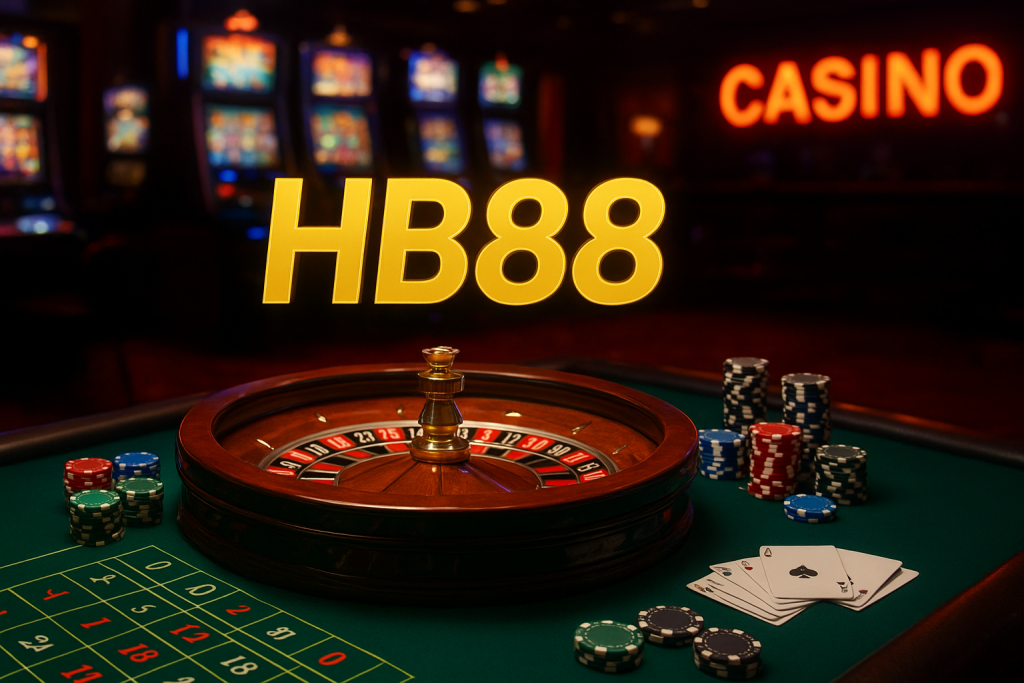
Casinos thrive on a simple but powerful concept: the house edge. This built-in advantage ensures that, over time, the casino generates consistent profits while still offering players the chance to win. For anyone who enjoys gambling—whether in a land-based casino or online—understanding how the house edge works is crucial to making informed decisions and managing expectations.
At its core, the house edge represents the statistical advantage a casino has in each game. It is typically expressed as a percentage, showing how much the casino expects to keep from every wager over the long run. For example, a house edge of 5% means that, on average, the casino retains $5 for every $100 wagered. While players may win or lose in the short term, the mathematics of the house edge ensures that the casino ultimately remains profitable.
Different games come with varying house edges. Slot machines, for instance, often have some of the highest advantages for the house, ranging anywhere from 4% to over 10%, depending on the game. By contrast, blackjack offers one of the lowest house edges, sometimes less than 1% when played with optimal strategy. This disparity means that a player’s choice of games can significantly influence their long-term outcomes.
Roulette is another classic example. In European roulette, the house edge is about 2.7% because of the single zero on the wheel. American roulette, however, includes both a single zero and a double zero, raising the house edge to around 5.26%. This subtle difference demonstrates how variations in rules can impact player odds.
Poker stands out as a unique case, since players compete against each other rather than the house. Instead of relying on a house edge, casinos profit from poker by charging a “rake”—a small percentage of each pot or entry fee. This distinction makes poker more of a skill-based game, where experienced players can consistently outperform less skilled opponents.
Understanding the house edge also helps explain why casinos are able to offer large bonuses, luxury resorts, and elaborate entertainment. The steady income generated from their statistical advantage allows operators to invest in promotions and facilities while still maintaining profitability. For players, this knowledge highlights the importance of viewing gambling as entertainment rather than a guaranteed way to earn money.
That said, strategies can still reduce the impact of the house edge. For example, using basic strategy in blackjack minimizes mistakes that increase the casino’s advantage. Similarly, players who learn optimal betting systems in games like video poker can significantly improve their odds. While no strategy can eliminate the house edge completely, informed play can maximize enjoyment while stretching a bankroll further.
Another important consideration is volatility. Some games, such as progressive slot machines, offer massive jackpots but come with higher variance and a steeper house edge. Others, like baccarat, provide more consistent returns with relatively low volatility. Players should choose games that match their preferences and risk tolerance, keeping in mind the balance between entertainment value and statistical odds.
Responsible gambling ties directly into understanding the house edge. Knowing that the odds always favor the casino helps players approach games with realistic expectations. Rather than chasing losses or assuming a big win is inevitable, players can focus on enjoying the experience within their own limits. This perspective reduces frustration and promotes healthier gaming habits.
Ultimately, the house edge is the foundation of the casino industry. It ensures operators remain profitable while still giving players the chance to enjoy exciting, unpredictable outcomes. For gamblers, learning how it works is key to making smarter choices and appreciating the balance of chance and strategy in every game.
For those interested in exploring a variety of games with transparent rules and fair play, HB88 offers a platform where players can enjoy entertainment while staying informed about the odds.